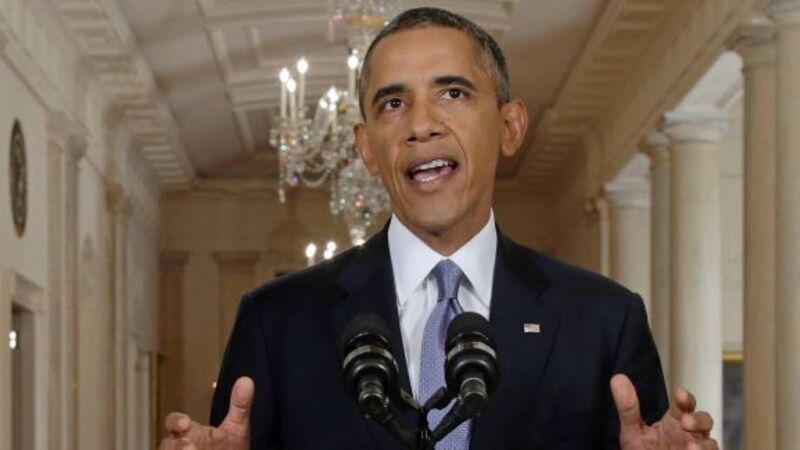Obama endorses Russian proposal on Syria

Barack Obama is conditionally endorsing a Russian offer for international inspectors to seize and destroy chemical weapons in Syria as efforts to avert retaliatory US missile strikes shift from Washington to the United Nations.
In a nationally televised address, the US president offered a rationale for greater US intervention in Syria’s sectarian civil war while acknowledging that winning the hearts and minds of Americans to back another Middle East conflict remains a struggle.














